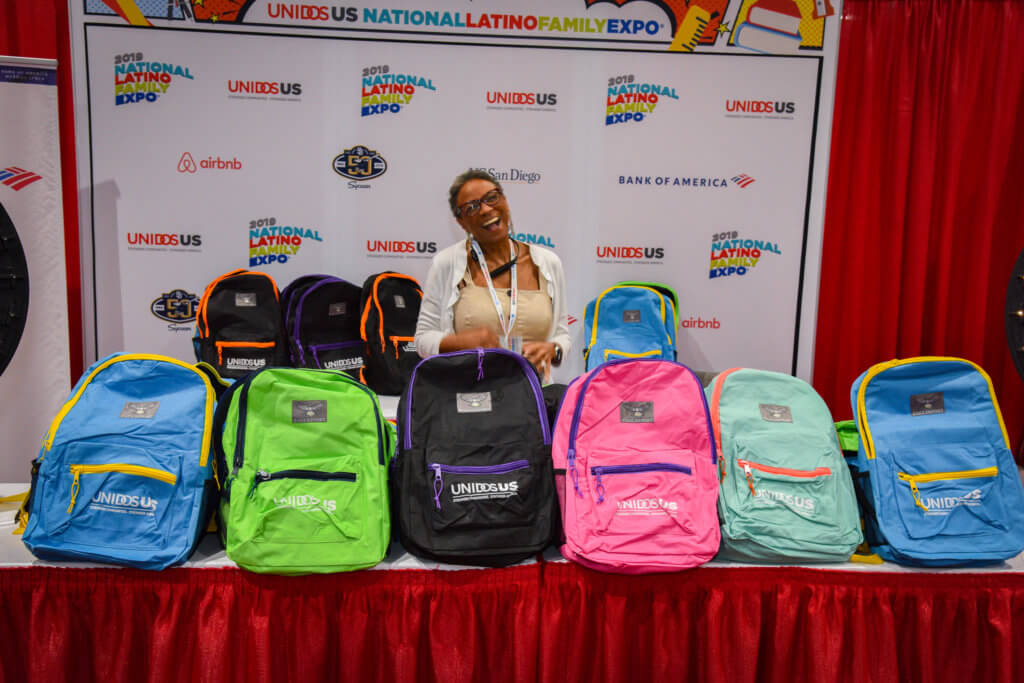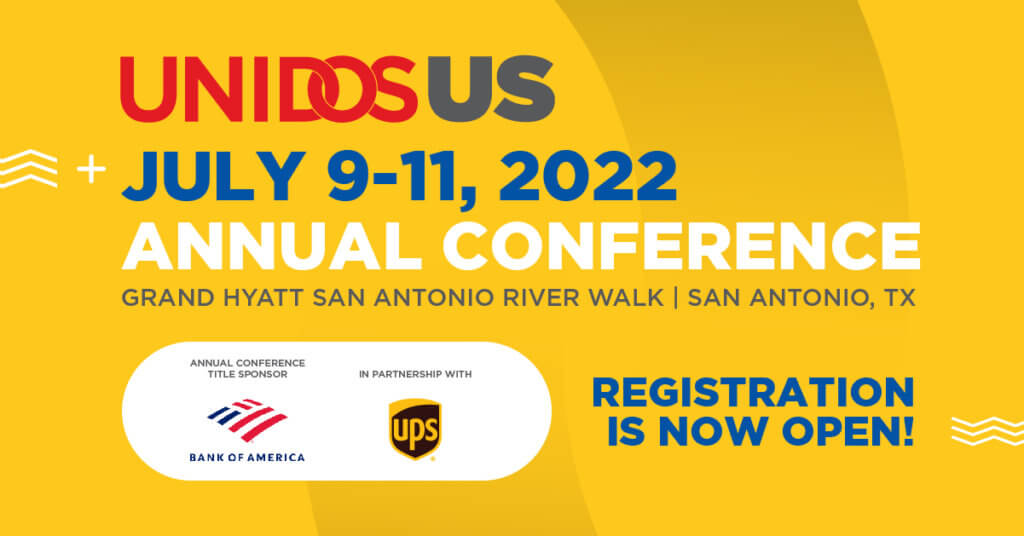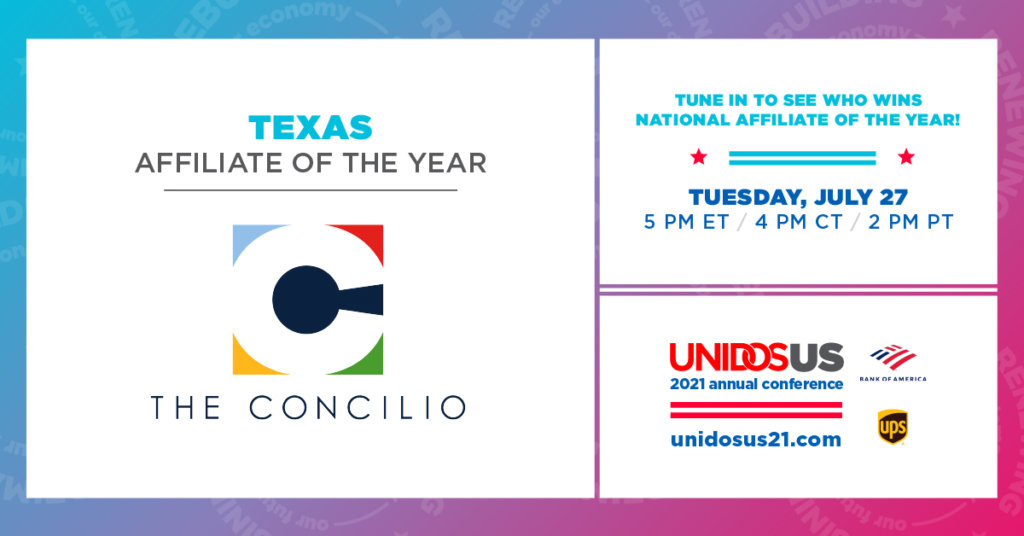Creating safe spaces for all: Two UnidosUS Affiliates at work for the Latinx LGBTQ community
This year’s UnidosUS Annual Conference will be hosted in San Diego, a community that celebrates Hispanic heritage and shows its contributions to American society through the exchange of cultures and commerce. California is our largest Affiliate region, and San Diego is home to eight Affiliates supporting the Latino community.
These Affiliates serve more than 150,000 clients in San Diego alone, in the areas of civic engagement, education, health, and housing. In our “Road to San Diego” Series we highlight the inspiring work they are doing in their community and the power of collaboration and leadership that is inherit within the UnidosUS Affiliate network.
In this article, we feature San Ysidro Health (SYHealth), which is celebrating their 50th anniversary this year, and South Bay Community Services (SBCS). These two organizations are both allies in their LGBTQ work: SYHealth, 2018 UnidosUS LGBTQ Champion and 2019 UnidosUS Helen Rodriguez-Trías Health Awardee, provides health services to this community beyond just HIV prevention, and SBCS provides a safe space for LGBTQ youth to be themselves. We recognize them during this Pride Month to showcase their amazing work.
Keep up with the latest from UnidosUS
Sign up for the weekly UnidosUS Action Network newsletter delivered every Thursday.
By Beatriz Paniego-Béjar, Content Specialist, UnidosUS
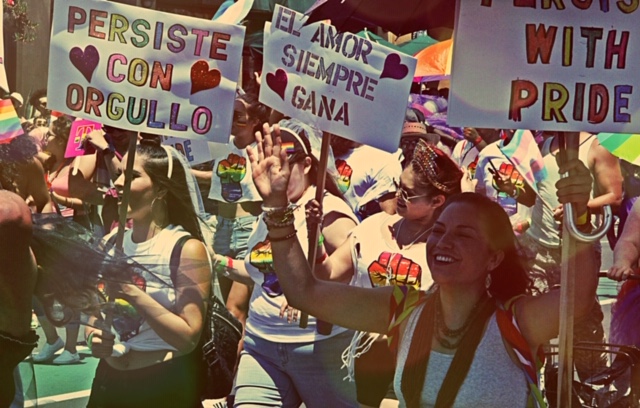
When seven women looking for health care for their children in San Ysidro, California, got together, they made things happen. It was 1969 and El Centro de Salud Comunitario San Ysidro opened its doors with three rooms and a staff of four volunteers: “Now, when I look back, I think that what we did was revolutionary,” says Ruth Covell, MD, a founding board member of what is known today as San Ysidro Health.
Today, San Ysidro Health continues being a revolutionary organization, having provided services for the LGBTQ community for 20 years—which earned them the 2018 UnidosUS LGBTQ Champion Award—and having just opened an LGBTQ-focused clinic last April. Their GeMS (Gender Medicine Sexual) Health Clinic acknowledges the unmet health needs of this part of our community, offering services and support that go beyond HIV testing and prevention.
The SYHealth’s HIV Services and LGBTQ Needs Department has been “the pioneer for serving the LGBTQ community for 20 years and we are spearheading a lot of the efforts within our own organization to ensure that it serves everyone,” says Karla Torres, associate director of the department. She explains how SYHealth changed their mission statement to “improve the health and well-being of the communities we serve with access for all.” “Access for all” is what thrills Torres, and having the pride flag in all their exam rooms is just one of the small steps to show their commitment to serving all people.
Opening GeMS, which had the support of SYHealth’s board members, executive director, and providers (doctors and nurses), meant that “regardless of HIV status, anyone can come in and receive their gender general medicine care, gender health, trans health—including hormone therapy, their PrEP services for HIV prevention, and HIV testing and screening,” says Torres. This has allowed SYHealth to reach the general public, not just those living with HIV.
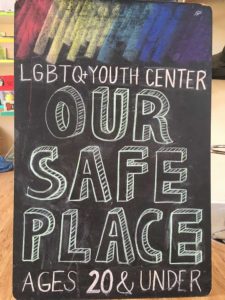 This effort brings with it education and training for the SYHealth staff as well, “focusing on cultural competency, cultural inclusion and humility, from frontline to back office staff, to serve the needs of the LGBTQ community. It is an exciting time for our organization,” Torres continues, especially since the San Ysidro community previously didn’t have easy access these services.
This effort brings with it education and training for the SYHealth staff as well, “focusing on cultural competency, cultural inclusion and humility, from frontline to back office staff, to serve the needs of the LGBTQ community. It is an exciting time for our organization,” Torres continues, especially since the San Ysidro community previously didn’t have easy access these services.
About 20 miles from Hillcrest—where many LGBTQ community, businesses, and services are—having SYHealth open a clinic to serve the South and Southeast of San Diego, where the LGBTQ population of this area can feel safe and supported, is a game-changer.
“Anything past the Bay (National City, San Ysidro, Chula Vista) really was like a desert of services for our LGBTQ youth community,” explains Patty Chavez, Director of Communications and External Affairs at South Bay Community Services (SBCS). “So a lot of the nonprofits came together to provide the services we were missing.”
PART OF A GROUP
SYHealth saw offering health services to the LGBTQ community as a gateway to supporting this population beyond health care, connecting them to behavioral and mental health services as well, and to support groups where “we could feel safe,” says Raúl Caleb Pérez, a client of this center.
He first came to SYHealth to learn about PrEP [a recent method of HIV prevention] and he asked his doctor for help finding a support group, “and it was then when they told me about CHIP,” he recalls.
SYHealth’s CHIP (Comprehensive High Impact Prevention) initiative is an HIV program to do mobile testing, counseling, and outreach. “CHIP provides support to youth ages 16 to 29, and information about STDs, how to have safe sex, etc., but also we prepare events to get together every week and talk about specific issues one wants to learn about,” Pérez explains.
Within CHIP, a group of men was formed and they named themselves PUMP. Pérez explains: “It is a safe space, because as a Mexican, as Latino, we grow up with insecurity and fear, being surrounded by machismo and religion, wondering if it’s right or wrong. In this group you know everyone has the same sexual orientation, and you can be yourself, knowing they are not going to judge you. Instead, they are going to help you.”
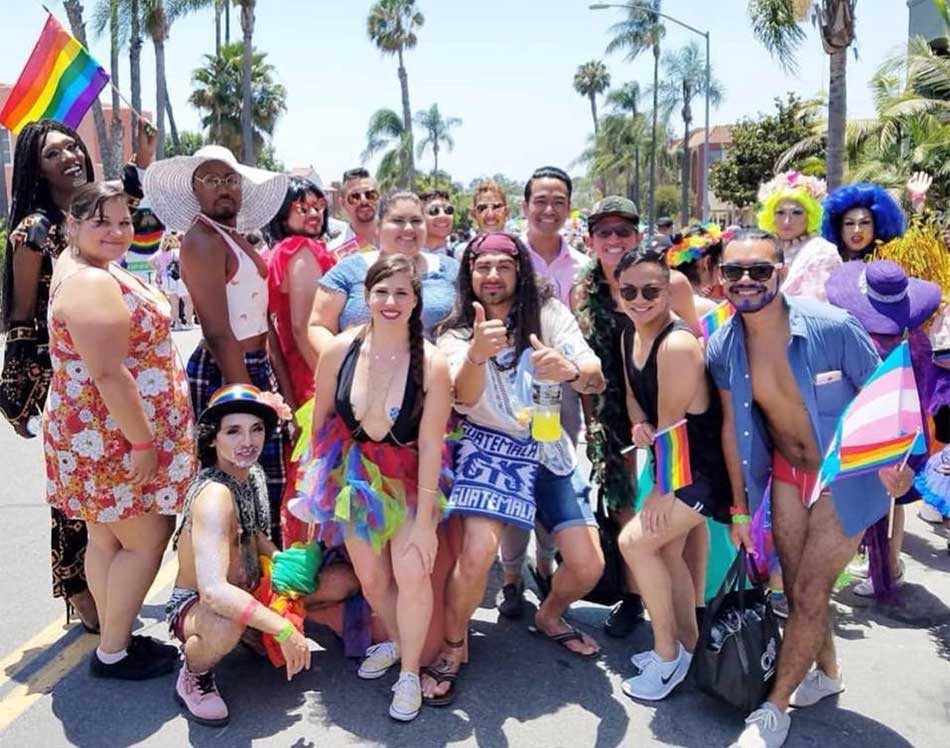
That connection and comfort is what PUMP brought to Trolley Trestle, an affordable, transitional housing center from South Bay Community Services for former foster youth and/or homeless youth, while they finish school or complete job training. Leo O’Driscoll, Youth Support Partner at Our Safe Place (OSP), the drop-in center at Trolley Trestle for LGBTQ youth (ages 20 and under) and their families, remembers when PUMP came and the impact it had in their group: they were able to ask all their questions, from the the ones they thought funny and ridiculous, to the serious ones they were first afraid to ask.
“The instructors looked like our youth: they were part of the LGBTQ community, they were part of the Latino community, and they were amazing in how they facilitated the conversation. Shame wasn’t a part of it. They created an accepting space, where the youth felt comfortable, and PUMP responded to any and all of the group’s questions, educating them,” O’Driscoll explains still in awe, because he realizes how special this talk was for his group, since all the education they had previously received was in school and at home, and tinted with shame. “Everyone shared afterwards that they learned something,” he adds.
A PILLAR FOR YOUNG PEOPLE
Working closely with the youth was at SBCS’s core from the moment they were founded in 1971 as a drop-in center called “Our House.” They first worked with teens struggling with drug abuse, and provided counseling and rehabilitation for them.
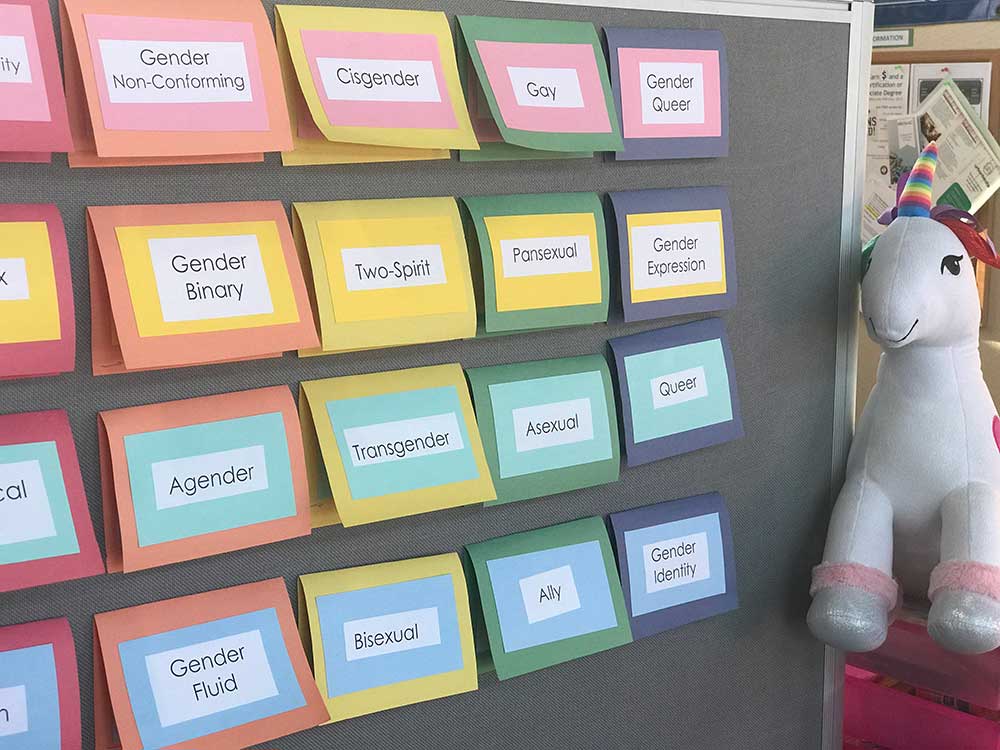
As they continued working with this population, SBCS realized there were many interrelated issues that affected them, and started providing a comprehensive suite of services, from housing assistance, to employment readiness, mental health counseling, domestic violence intervention, and more.
“Of our various programs, one of them is focused on youth prevention and intervention. Within that umbrella of services, we serve former foster youth and current foster youth that are mostly on their own, and some who are homeless,” Chavez explains.
It was for this youth that SBCS built Trolley Trestle approximately 20 years ago. “Back in 2000, there was a saturation of young people that originated from the foster care system, and they didn’t have a housing placement,” says Xavier Martinez, Program Director for Youth in Transition at SBCS. “That’s how a lot of these young people were becoming homeless and doing whatever they could to survive and put a roof over their head.”
RELATED CONTENT
Report | Coming Out: Living Authentically as LGBTQ Latinx Americans
Jacqueline Rosas, Program Coordinator for Youth in Transition at SBCS, shares that within their homeless population, many are LGBTQ. According to the organization True Colors United, almost 40% out of the 1.6 million of youth experiencing homelesness in the United States identify themselves as LGBTQ.
Once this issue was identified in their community, the San Diego County Health and Human Services Agency funded Our Safe Place (OSP), a collaborative program with San Diego Youth Services, SBCS and the YMCA with each partner providing a drop-in center and San Diego Youth Services also providing a clinic with LGBTQ-specialized therapists free of charge. “All we want is to provide these kids with stabilization,” Rosas says.
As SBCS explains, the issue of homelessness for this population doesn’t come from their identity or because they come from the foster care system, but because of the reaction of their families and communities: “It is a group of youth that is at greater risk of rejection, abuse, drug use, trafficking, etc. At OSP we provide them with a space that is safe and affirming,” O’Driscoll explains. This space includes support for alcohol and drug abuse, coming out, depression, family relationships, gender identity, sexual health, safe dating, and transitioning.
We all have the right to be ourselves. Puerto Rican and professional boxer @ElFenomenoCruz, a UnidosUS’s Roberto Clemente Award for Sports Excellence honoree, embodies #WhatLatinoLooksLike with pride. Thank you for everything you’ve given to our community. #OrgulloLGBTQ pic.twitter.com/lI7K2Fx6Zu
— UnidosUS (@WeAreUnidosUS) June 7, 2019
SEEING THEMSELVES
Bringing PUMP to OSP was eye-opening for the youth: they could now see themselves reflected in this group, identify themselves with them, and eliminate the idea that they are alone. Raúl Caleb’s story is a perfect example of the experiences that many of our Latinx LGBTQ youth go through.
A DACAmented student in San Diego State University who will be graduating in just three semesters, Raúl Caleb was 20 when he came out to his family. “We’ve cried a lot,” he shares. He’s now had time to process it, and he tells the story very objectively, but he remembers: “It was very difficult. Home and church were my safe spaces, but when I came out, I fell into depression because I didn’t have that support any longer. I didn’t feel safe at home, and it was very sad to get home and not be able to be myself. For the longest time I thought I was the only gay person in the world because of what my parents told me.”
Pérez thought his family realized he was gay: “I am a twin, and I am more effeminate than my brother, I love bright colors, my body is more feminine, so I really thought I was going to have the support of my family,” he continues. His mom was scared he was going to die from HIV, perpetuating the LGBTQ stigma and stereotype. His dad thought it was his fault for not giving him enough love: “I always told my dad I wanted him to call me handsome and give me hugs.”
But they still have a relationship: “I want to see my parents, see them in the streets and be able to say hi, and have a relationship with them. And I’m getting them ready for the day I tell them I’m marrying a man. I tell my mom that I don’t want her to faint,” Pérezsays with some humor. “It is difficult, but little by little they are understanding.” And he deals with all of it through his work with a therapist, as well as the great connections in the support groups he’s met through SYHealth, and taken to SBCS’s Our Safe Place.
The immense benefits this group has brought to him makes Pérez want to share that support with others in the community, which is why he’s so involved in CHIP, PUMP, and attending outreach events at places like Trolley Trestle.
“Little by little, the community at large is advancing,” Pérez says. “The majority of the community here in the South is raised on the border, where we are still lacking the freedom of self-acceptance, but I do believe we have advanced a lot because we see that there are many new members in the group.”
“Now we sometimes even see parents coming with their children to the testing: they have questions and they are interested in what we do and who we are,” he adds.
SYHealth and SBCS’s work show that they are creating a community that is not only there for a moment of crisis, but is a place where Latinx LGBTQ people can feel safe and be who they truly are. We commend you, and we are proud to have you in our Affiliate Network.
To learn more about San Ysidro Health and South Bay Community Services, don’t miss UnidosUS’s 2019 Annual Conference. Registrations are now open, and you can check the full schedule of workshops and activities here.
One of our very first Affiliates, @CPLCdotORG, is turning 50 this year! What’s the key to their longevity? https://t.co/3xyb4mrwyz
— UnidosUS (@WeAreUnidosUS) June 13, 2019

